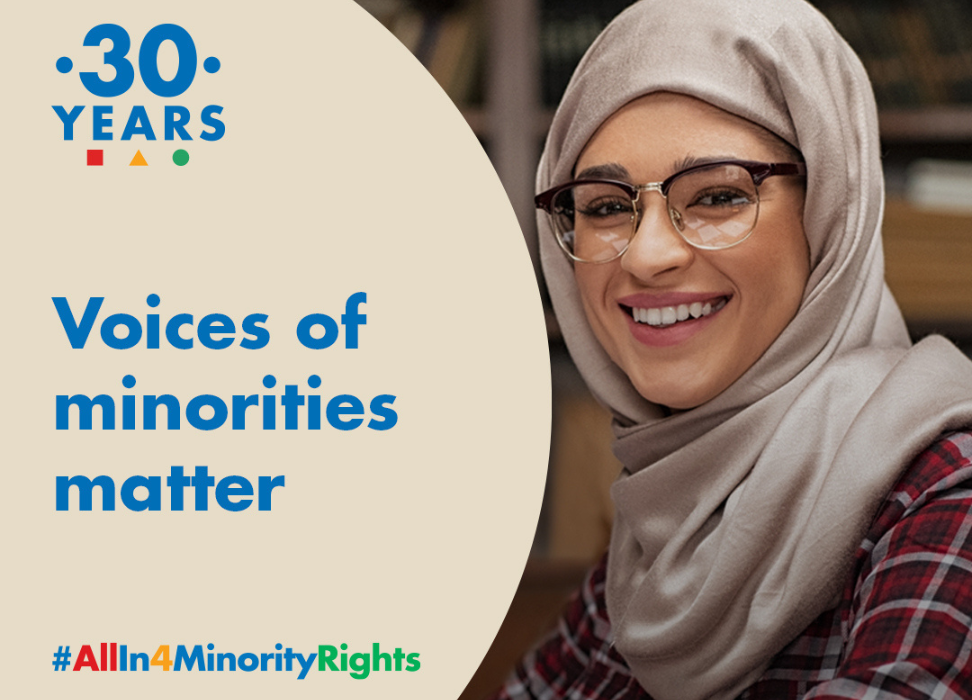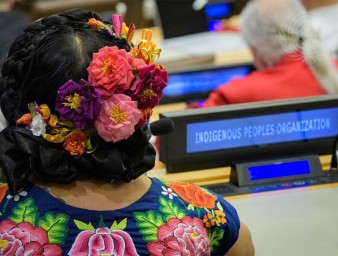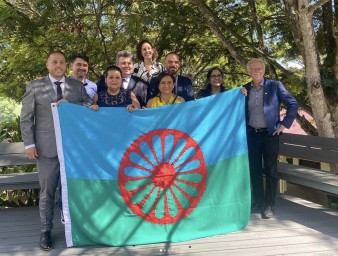New publication provides comprehensive anti-discrimination guidance
06 December 2022

UN Human Rights and the Equal Rights Trust have joined forces to launch Protecting Minority Rights: A Practical Guide to Developing Comprehensive Anti-Discrimination Legislation. The guide, the first of its kind, details the human rights obligation to adopt comprehensive anti-discrimination laws at national level, as well as on the scope and content of such legislation as set out under international human rights law.
The publication was developed over a three-year consultation. It aims to fill a long-term identified need for a go-to-manual for governments, civil society, human rights defenders and other stakeholders, on the main concepts and content of anti-discrimination law, aspects of the comprehensive ban on all forms of discrimination and protection of minorities.
The Equal Rights Trust has been supporting those working to enact comprehensive anti-discrimination laws for 15 years.
“In every corner of the world, we have witnessed the need for clear, comprehensive and authoritative guidance on what states must do to fulfil their international obligations to prohibit discrimination and promote equality,” said Dr Evelyn Collins, Chair of the Trust. “This guide meets that need and we know that it will be invaluable to our partners and all those involved in the fight for equal rights.”
There can be no equality where there is discrimination, said UN High Commissioner for Human Rights Volker Türk.
“We cannot eradicate discrimination unless comprehensive and effective equality laws are enacted, enforced and implemented,” he said. “These laws provide a foundation for states to realize their ambition to be inclusive and to forge societies in which everyone is equal in dignity and rights.”
Giving tangible hope
Comprehensive anti-discrimination laws translate international legal commitments on equality into actionable and enforceable rights under national law. They provide the national legal framework necessary to define the various forms of discrimination, provide guidance on effective remedy, and establish the procedural safeguards required to secure justice for victims. For example, Mari Korkotade who heads Families Against Discrimination in Georgia, said that her son might not have been able to go to school, if her country had not localized international laws banning discrimination.
"Without the Law on Elimination of All Forms of Discrimination in Georgia, my son with autism spectrum would not be able to attend school, neither would he be granted services that he enjoys at school today and would be constant victim of bullying and societal segregation,” she said.
The movement for equality law is a global one, said Claude Cahn from UN Human Rights Indigenous People and Minorities Section. It is something that a broad range of stakeholders see as central to the advancement of human rights.
“People and States on all continents recognize the need for an actionable, comprehensive legal framework, accessible to people, to challenge discrimination when it takes place, and to receive effective remedy,” said Cahn. “In the coming 75th anniversary year of the Universal Declaration of Human Rights, we will continue to engage to advance efforts in this area worldwide.”
In Argentina, groups have been campaigning since 2010 for the adoption of overarching anti-discrimination laws, said Maria Rachid, Secretary of Institutional Affairs for the Argentine Federation of LGBT people (FALGBT). While the groups have yet to succeed at the federal level, they have had some success on the local level, with a new Anti-Discrimination Law enacted in Buenos Aires in 2015.
“As we continue to campaign for a new federal law, this guide will be important source of support, providing clear and accessible guidance on what the state must do to provide effective protection from discrimination,” Rachid said.



